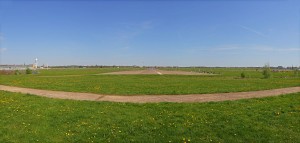If you want to be environmentally friendly, you should in particular avoid buying clothes made of mixed material textiles. The worst offender being the all too common blend of cotton and polyester.
Because while both textiles made out of cotton and the synthetic, plastic fibre polyester are technically recyclable today, the mix of the two in one textile product makes it nigh impossible to recycle.
In addition to the recycling problem, there is also the environmental impact from microplastic – microscopic plastic pieces are continuously shed from the polyester fibres during wear and washing of the clothes – that end up in nature and are virtually undegradable.
In short, there are a multitude of reasons for avoiding clothes that consist of or includes polyester.
Source: BBC Future Planet
